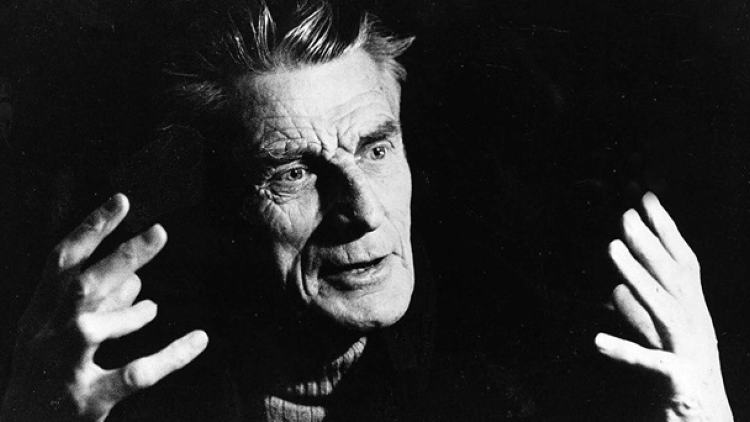Art and Nothingness

Samuel Beckett.
Can we define who we are? Samuel Beckett (pictured), a playwright, didn’t believe so. In his work he espoused a philosophy which was founded on Nothing; that beneath our curated identities
Thus, in Beckett’s view, art is an obligation to express nothing; language is an instrument to name the unnameable; and science and philosophy are tools which expose a void.
Pre-Socratic philosopher Gorgias of Lentini (483–375 B.C.) thought something similar: nothing has real existence; and if anything real did exist, it could not be known; and if anything were to exist and be known, it could not be expressed in speech.
Likewise, Marcel Proust’s essays instilled in Beckett an uncertainty of who we are. The tyrannies of space and time hinder us, he thought, leading Self to be perpetually unformalisable. Self-awareness is only accurate if uninterrupted and reflects the Nothing that exists at the ultimate depths of our realities.
To the tune with all of this, Beckett’s characters collapse under the burden of choice, responsibility, and anguish: for there is no self. Beckett was inspired by the literature of Dostoevsky (Notes from Underground) and Kafka (The Metamorphis), wherein the main characters ‘become’ what they fear they are: insects. A similar becoming happens in The Picture of Dorian Gray by Oscar Wilde.
Only in solitude and suffering can true self-identity be established; only when Nothing is our universal ultimate can our art have significance.
Is life more than blankness, indolence, and indecision? I think, yes—but only if you craft it so by indulging superficial value and beauty.
Imprisoned or naïve—which character will you be?
